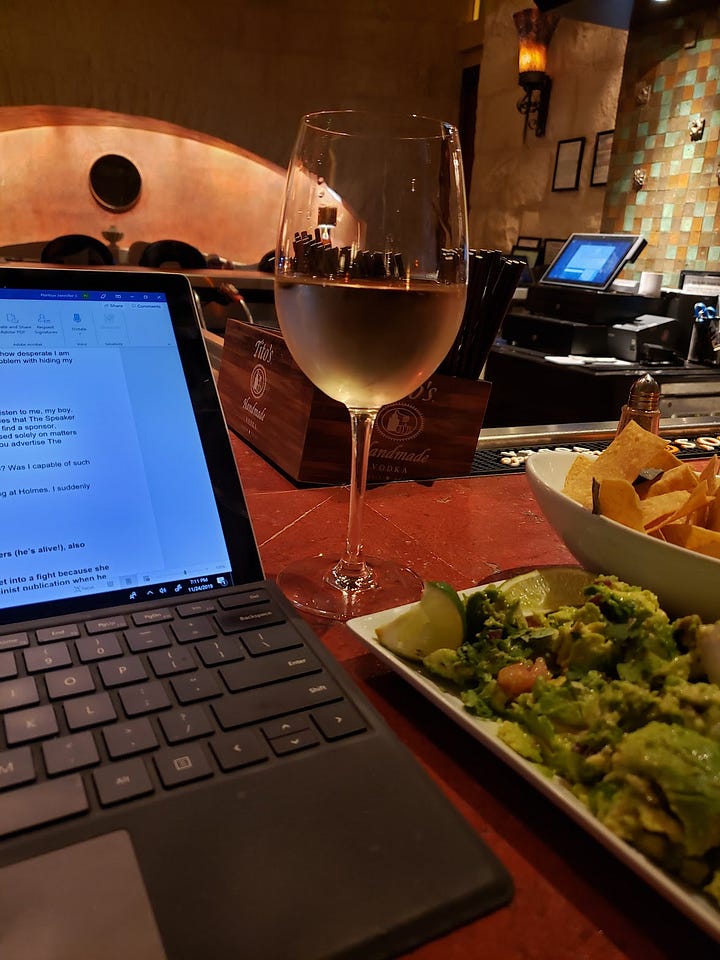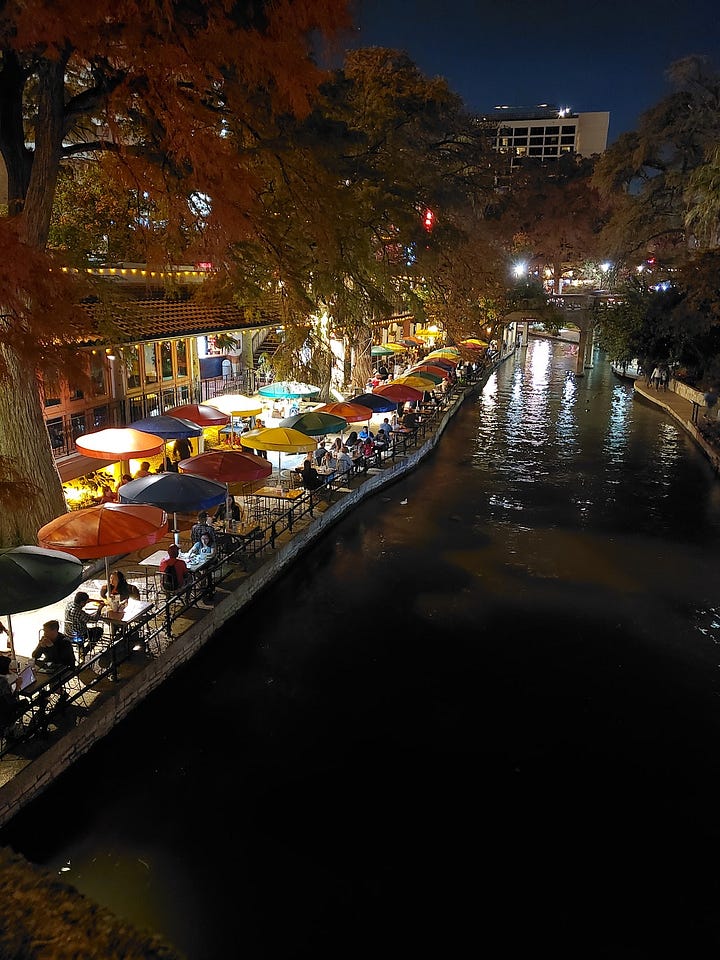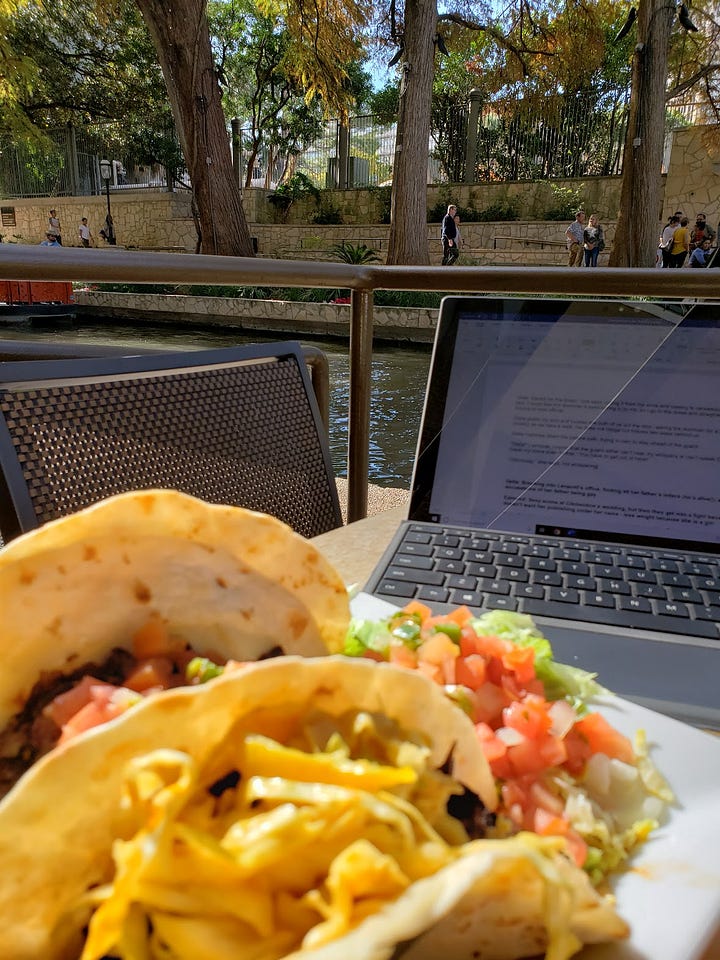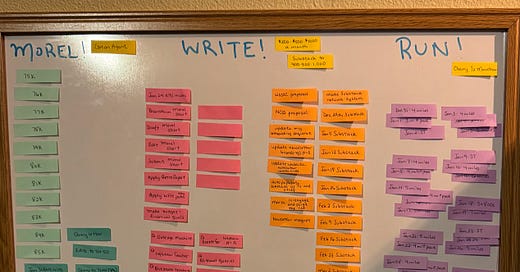Typically here at Jenna Repeats History, I cover a historical book to read, a lesson to teach, and a place to explore. The goal (executed ~75% of the time), is for the book, lesson, and place to all share some common link.
I am deviating to focus on writing instead of teaching this week. Get excited.
An essay to read: THE GETAWAY CAR: A PRACTICAL MEMOIR ABOUT WRITING AND LIFE, by Ann Patchett.
Usually, when you ask writers about their favorite writing books, you’ll get ON WRITING by Stephen King, BIRD BY BIRD by Anne Lamott, and BIG MAGIC by Elizabeth Gilbert. I love all those books, particularly the part in ON WRITING when Stephen King, one of the most prolific writers of our age, discusses how impossible it was for him to write books back when he was a classroom teacher. Stephen King says that teaching sucks all creativity and writerly drive right out of you.
Vindication!!
I know, Stephen King,
I. KNOW.
But my favorite book about writing is Ann Patchett’s essay THE GETAWAY CA, published in her first essay collection THIS IS THE STORY OF A HAPPY MARRIAGE. I have an audio version of the book and I always listen to it when I need a bit of inspiration. Consequently, I have the whole hour+ essay memorized.
“I was always going to be a writer,” Ann Patchett opens. “I have known this for as long as I have known anything.”
Then she unfolds the writing highlights and lowlights of her life, skipping quickly through her childhood aspirations as a poet (“…I entered poetry contests and won them…”) and her first poetry class at Sarah Lawrence College. She barely passes the class due to “editing herself off the page.” Writers know all about this: it’s when you think of a sentence, but before even writing it down, you think of all the reasons that the sentence is terrible and consequently write nothing. Ever.
But Allan Gurganus, Grace Paley, and Russell Banks set her straight and teach her to “write it out,” “stack up the pages,” and how to live a life worth writing from. Her successful college career culminates in a writer-in-residence university job and a story in the Paris Review which lands her a literary agent.
And then Ann Patchett gets a divorce.1
She quits her job, leaves the state, moves back in with her mom, and gets a serving job at TGIFridays.
While rolling silverware and taking daiquiris to table 8, Patchett cooks up a novel in her head. That novel is going to be her getaway car. And it is.
Aside from all the career details and advice, Ann Patchett writes about what it means to be a writer: It means you love writing and continually put it at the bottom of your to-do list. It means you prefer cleaning the oven to working on an impossible scene. It means you can see a novel so beautifully in your head but fear to start writing, knowing that you can’t possibly do it justice on the page.
It’s a gorgeously written and often funny memoir, perfect for wannabe writers who need to stop making excuses, get their butt in the chair, and write.
A lesson to teach: Writing Classes
I haven’t taken a lot of writing classes. In THE GETAWAY CAR, Ann Patchett warns that spending a bunch of money on writing classes is not a good financial decision. Learn to write by writing.
My wariness of classes has only intensified over the years, as nearly every “influencer” on social media offers classes on something, often with a monthly installment payment plan to pay for it.
However, I love classes. So there have been a few times over the years that I’ve indulged myself with a writing class, workshop, or conference. Here are the few that have been more than worth it, financially speaking.
MatadorU from The Matador Network: The Matador Network is a travel website. Back in 2010 they offered a course for wannabe travel writers. As I was in the throes of leaving my teaching post in Las Vegas, teaching in China, and then driving in circles around the US, I decided to give travel writing a try. The multi-week course was taught by Julie Schwietert Collazo, an absolute master. She took us students through all the freelance basics of coming up with ideas, contacting editors, pitching stories, and place-based writing. There were assignments every week that I completed with gusto.
I don’t remember how much the class cost, but it was more than worth it. I immediately began getting assignments with local Las Vegas magazines and small online publications. One of the places I pitched was Western Art and Architecture, which led to a decade of assignments (my article about Wichita is coming out this month!) totaling several thousand dollars. So the class was well worth it for that connection alone.
I also wrote a few pieces for Matador themselves and scored a press trip to New Mexico in those early days.



And then I went and got myself pregnant. I wanted to be a mom way more than I wanted to be a travel writer, so got myself back into the classroom and turned to writing about education and parenting.
However, I still have an account with The Matador Network. Every month I peruse their pitch calls and invitations to apply for press trips with a touch of wistfulness. I’ve snagged a couple of summer trips and assignments over the years, but it’s hard to be a travel writer AND a full-time classroom teacher AND a parent to busy pre-teens2. Ah, well.
Takeaway: Taking a class on how to become a freelance writer from an outlet that will also turn around and publish your work can be a good bet. As always, what you put into a class dictates what you’ll get out of it.
Sarra Cannon’s HB90 BootCamp: I know, I know. I just made fun of influencers who churn out classes, but this was such a good one. I’m not a huge YouTube fan, but Sarra’s Heart Breathings channel is one of the two channels I subscribe to and watch religiously3. Sarra is an indie-published writer with a planner obsession, so her channel is all about writing and productivity. Her HB 90 class is a week-long “bootcamp” that guides students through looking at their time for the next 90 days and then setting up goals/schedules/systems to meet these goals.
It is $199, a little steep to me. I resisted for a while. However, a couple of years ago I went for it. Within a month I’d made over $1000 in writing income due to goals set in the course. So it was worth it, after all. The best thing about this class is the lifetime access, so you can go through it all every 90 days to set your next batch of quarterly goals, which I’ve done every quarter since my initial sign-up. If you are interested, check it out and sign up here by Sunday, March 14th.
National Council for Social Studies: I love conferences as much as I love writing classes. While I have gone to a few writer conferences, my favorites have still been the national Social Students Teachers conferences put on by NCSS, and my local Washington State Social Studies Conference which have long inspired my teaching AND my writing.
On the teaching side, workshops at conferences give me tons of teaching ideas, resources, and (most importantly) inspiration. Conferences often spark ideas that I’ll later pitch to a magazine, like these stories on flipped classrooms4, experiential learning, and putting the social in social studies.
Conferences are also a great place to connect with educational companies. I’m pretty choosy about freelancing in this sphere as I have no interest in writing canned curriculum or test bank questions. Nor do I care to help feed the for-profit EduTech startups or big textbook publishers who are beholden to Texas state standards. But I love to write for small publications.
My favorite non-profit to both work with and use in the classroom is RetroReport. I met the company’s Director of Education at NCSS in Philadelphia a couple of years ago and applied to be part of the teacher ambassador program. This led to writing curriculum for several of the short-form documentaries that RetroReport produces (Quality stuff! Emmy nominated!) and eventually being part of their Cohort of Educators that meets in New York every summer.
Another conference win was learning about the NCSS Trade Book Selection Committee. I applied to this every year until I got in. It’s not a paying gig, but getting 300+ free books is practically like winning the lottery.
A place to explore: Anywhere, as long as you are by yourself.
I love writing while traveling. I am most productive on trains, planes, and hotel lobby rooms.
But only when I’m traveling alone. If I’m with people, I’d rather run around exploring and spend the evenings eating and drinking and shrieking with laughter. I love traveling with my friends and family.
But I also love traveling alone. On these trips, it’s all about early morning runs, and days spent quietly exploring and stopping every 30 minutes to write, write, write.
A few years ago I found myself in San Antonio, all by myself for two days. It was the most productive two writing days of my life. The plan that I mused about in the video below actually worked. I wrote 10,000 words in two days.
I just bounced from restaurant to bar to restaurant along Riverside. I’d pluck myself down, write 1,000 words, and then amble along to the next sight. I even brought my laptop to The Alamo and found a bench where I could get some words in.
I was so, so happy on this trip. That first evening, I got to a bar, ordered my guacamole and wine, pulled out my laptop, and sighed a happy sigh. I was just so delighted to be able to have the space and time to write.
The bartender dropped off my food, noticed my laptop, frowned.
“I’m so sorry you have to work on a Friday night,” he said, pulling a sad face.
I stared at him for a second, unable to comprehend his words, his sorrow, his sad face.
“I’m having the time of my life,” I assure him. “I’ve written over 5 thousand words today!”
He gave me a strange smile and left me alone. Success.




Happy teaching, traveling, reading, and writing! See y’all next Sunday.
Affiliate book links in this newsletter are through Bookshop, a book-buying platform that gives independent bookstores tools to compete online and maintain their presence in local communities. If you purchase books via the links in this newsletter, you’ll are financially supporting me AND your local independent book store, so thank you! Signing up for the HB90 course via the link above will also throw some money my way, so thanks :)
That’s the next story in the collection: The Sacrament of Divorce. It’s a good one too.
On my way to an overnight cheer competition currently…
The other is Cecilia Blomdahl.
Anyone remember THAT trend?




Also hard agree on the teaching being not conducive to creativity. I felt like all my mental 'writing' energy was going towards my students. No hate to them, that's what I signed up for. Huge kudos to all of the academics that can do this because I do not have the constitution for it.
I’m getting that Ann patchett book immediately! Thanks for the recommendation. And solo writing trip sounds amazing - wine & guac & 5000 words! ✨